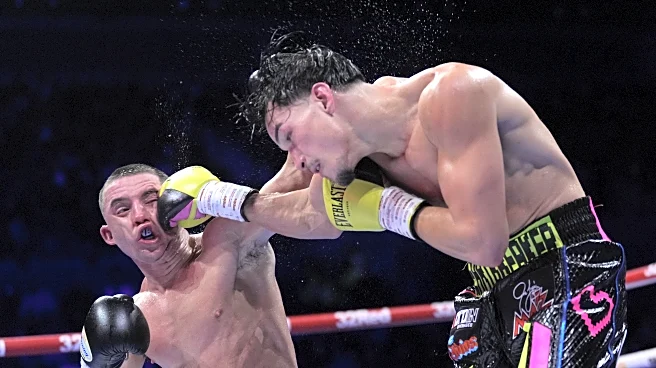What's Happening?
With the conclusion of the 2025 WNBA season, focus has shifted to the ongoing collective bargaining agreement (CBA) negotiations between the league and its players. NBA Commissioner Adam Silver, who plays a role in these negotiations, has indicated that
WNBA players will receive a significant pay increase. Silver stated that the focus should be on absolute numbers rather than revenue share, given the disparity in revenue between the NBA and WNBA. The current CBA is set to expire on October 31, but the deadline can be extended if necessary. The negotiations have been a major storyline, with players seeking a system that ties salaries to revenue growth, similar to the NBA model. Silver's comments have sparked optimism among players that their salary demands may be met.
Why It's Important?
The potential salary increase is crucial for addressing player concerns about compensation and ensuring that salaries reflect the league's growth. The WNBA has seen significant increases in attendance, viewership, and franchise valuations, making fair compensation essential for maintaining player satisfaction and attracting talent. The negotiations are also important for the league's future expansion plans and its ability to create a viable economic model. The outcome will impact the league's reputation and its ability to retain top players, as well as its attractiveness to investors.
What's Next?
If an agreement is not reached by the October 31 deadline, negotiations may be extended. A new CBA is necessary before the expansion draft for the Toronto Tempo and Portland Fire, and before the free agency period in early 2026. The ongoing discussions will focus on balancing player salaries with the league's long-term viability, and stakeholders will be closely monitoring the negotiations for any developments.
Beyond the Headlines
The negotiations highlight broader issues of gender equity in sports, as WNBA players seek compensation that reflects their contribution to the league's success. The discussions may set a precedent for other women's sports leagues, influencing how they approach player compensation and revenue sharing. The outcome could also impact the cultural perception of women's sports and their commercial viability.
















